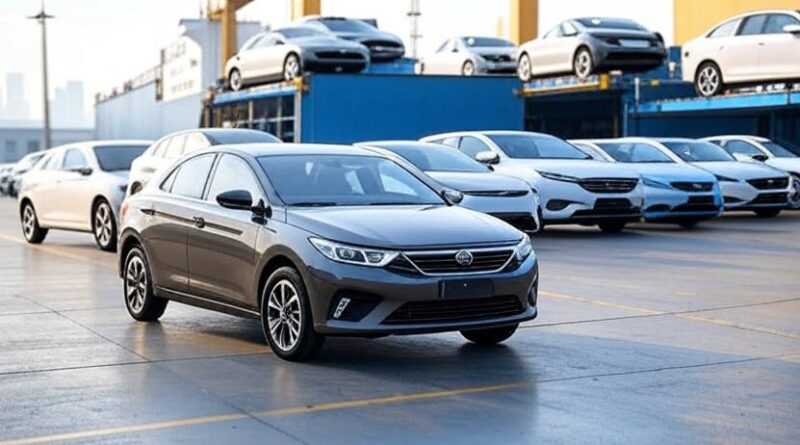China Auto Industry Exporting New Cars as ‘Used’ – Really?
China has quickly become the world’s biggest car exporter, overtaking Japan and flooding global markets with everything from electric hatchbacks to petrol SUVs. But now, a new issue has surfaced: some manufacturers in China Exporting New Cars as Used, creating the illusion of stronger domestic sales and bending trade rules in the process according to information online. This unusual strategy is raising questions about data manipulation, unfair market practices, and long-term impacts on global auto trade.
The Strategy: Selling New Cars as Used
Here’s how the process works:
- A brand-new car is built and registered in China, often without ever being driven on public roads.
- That single registration allows it to be officially classed as a “used” vehicle.
- The car is then exported to another country, sometimes labelled as a used import, even though it’s in perfect condition and has never had a real owner.
This method allows carmakers to record the vehicle as sold domestically, boosting their China sales numbers. At the same time, the car is still pushed out of the country to balance oversupply.
Why Are Automakers Doing This?
1. To Boost Domestic Sales Numbers
Carmakers report these registered cars as domestic sales, making their performance in China look better than it is. It helps meet internal targets, pleases shareholders, and improves their standing in local rankings.
2. To Circumvent Higher Import Taxes
In many countries, used cars are taxed at a lower rate than new ones. By classifying a new vehicle as used, Chinese exporters may avoid higher tariffs or bypass tighter rules for new vehicle imports.
3. To Clear Out Unsold Inventory
China’s domestic market is cooling, especially for combustion-engine cars. By reclassifying slow-moving stock as used and exporting it, companies can keep factory output high and avoid warehouse build-up.
Where Are These Cars Going?
The practice is especially common in regions with less strict import rules or weak enforcement:
- Russia and Central Asia
- Middle East and Africa
- Parts of Latin America and Southeast Asia
These markets often rely heavily on used imports and are less likely to question the background of low-mileage cars.
Who’s Doing It?
While no specific automaker has been officially named, industry sources point to a mix of struggling traditional brands and newer EV startups under pressure to grow fast. Sharp spikes in used car exports from certain Chinese ports have caught the attention of trade analysts.
What Are the Risks?
Trust and Transparency
If global markets lose confidence in the accuracy of China’s auto export data, it could harm the reputation of all Chinese carmakers — not just the ones using this tactic.
Trade Disputes
Governments may push back with new regulations, import restrictions, or investigations. Some countries could impose extra duties or block vehicles that don’t meet their definitions of “used.”
Consumer Confusion
In the receiving country, a buyer may think they’re getting a used car but find out later it was never actually owned or driven. That affects resale value, warranty status, and confidence in the brand.
How Widespread Is the Problem?
There is no official figure yet, but even a small percentage of China’s record-breaking exports could involve tens of thousands of vehicles. China exported over 5 million cars in 2024. If just 5 percent of those were “used” on paper but new in reality, that’s 250,000 units.
China’s Official Response
So far, Chinese regulators haven’t made a public statement about the practice. However, as scrutiny increases from trade partners and international watchdogs, pressure may grow for China to crack down or clarify the rules around vehicle classification and exports.
Final Thoughts
China’s automakers are producing solid, well-priced cars, especially in the EV sector. But shortcuts like registering new cars as used to inflate sales or ease exports could backfire. Trust matters in global trade — and gaming the system, even in technical ways, can hurt long-term growth.
For now, the industry walks a fine line between aggressive expansion and reputational risk. Whether regulators tighten oversight or markets push back will shape the next chapter of China’s global car strategy.
Buying a used VW. Buying used vauxhall, BMW, Jaguar, Ford, Volvo, Range rover, Bentley, Aston Martin, Porsche, Ferrari, Lamborghini, Maserati, Hyundai, Tesla, Honda, Pagani

